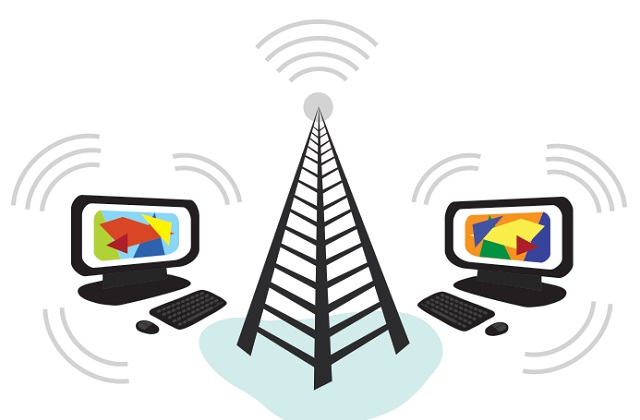
This comes at a time parliament is now involved in coming up with a proposed budget for the next financial year
Kampala, Uganda | THE INDEPENDENT | Ugandan government need to review taxes on internet and internet-enabled devices such as smartphones ahead of the proposed national budget for the Financial Year 2023/24 to achieve the 2040 digital vision
The country’s digital vision seeks to empower and encourage citizens to adopt mature and emerging technologies to achieve the goals of universal inclusion, sustainable development, economic progress and poverty eradication through digital innovation.
The East African Budget Network – which represents more than 10 Civil Society Organizations from the then 6 States of the East African Community (EAC): Rwanda, Burundi, Tanzania, Kenya, South Sudan and Uganda – said the country’s internet is already expensive compared to the rest of the countries in the region and it cannot afford to get worse in undercutting the already narrow internet penetration and opportunities foregone, in the name of taxes.
“Taxes on the internet and smartphones translate into rolling back financial deepening, agency banking prospects and access to information and other services. Surely as Uganda, we can avoid the temptation of rolling back the hitherto impressive digitisation the National Resistance Movement government gains,” said the East African Budget Network coordinator, Julius Kapwepwe.
“The revenue body must synchronize with the Uganda Communications Commission and National Resistance Movement Manifesto implementation office plus more engagement with other sector stakeholders, to balance where internet and smartphone tariffs must speak development and deepening digital efforts in Uganda as we prospect for market opportunities in the Arab world, UAE, China, Eastern Europe and Common Market for Eastern and Southern Africa and others.”
Kapwepwe said the internet is an enabler and amplifier of business transactions, communication and e-government services in this globally digital world and that the country can only be less motivated to stifle any enabler in the name of taxes.
“The tax regimes in the FY 2023/254 must speak to the removal of tax on internet, mobile services and large data consumption, to support economic development for competitive investment climate and wealth creation for people and companies, “he said, adding that the government should look beyond near offshore areas to deeper water fishing through conscious investment today for taxes tomorrow.
The government 2021 ditched the Over-The-Top (OTT) tax that it introduced in 2018 on the use of social media services after the tax failed to raise revenues and constrained internet usage.
Instead, it introduced a 12% tax on the internet and maintained a cocktail of taxes on the importation of mobile phone devices including an 18% Value Added Tax and 10% import duty on mobile phones including smartphones that are supposed to be exempted from import duty per the East African Community Common External Tariff.
This comes at a time parliament is now involved in coming up with a proposed budget for the next financial year that starts in July.
Jane Nalunga, the Executive Director at the Southern and Eastern Africa Trade Information and Negotiation Institute (SEATIN) said it is time for the government to repeal the tax on the internet as well as reduce or rescind tax on internet-enabled devices such as smartphones to hasten the realization of a digital economy.
“Imposing taxes on internet and the internet-enabled devices such as smartphones contradicts the government’s initiative of digitalizing the economy. Any government’s move towards a certain direction needs to be in tandem with the taxes so that the objective is achieved,” he said.
“The government should therefore rescind these taxes to increase internet access, availability and affordability to the customers. It needs to reduce taxes on smartphones as well consider scrapping off internet tax.”
Nalunga said scraping off certain taxes should not be seen as a loss of revenue but to facilitate the achievement of specific objectives that would at some point enable the government to collect more revenues owed to vibrant economic activities that ride on the internet services such as e-commerce.
“If more people can access smartphones and use them to boost communication and access to information, boost productivity and make markets more efficient, the government can be able to recoup those taxes via numerous taxes such as Value Added Tax,” she said.
The high costs of smartphones as a result of taxes have been identified as the major reason for the slow uptake of the devices in Uganda, according to ITU/UNESCO Broadband Commission for Sustainable Development’s Working Group on Smartphone Access.
Internet service providers including telecoms such as MTN Uganda have since 2018 argued that taxes on smartphones that are as high as 33% actual price of devices have made it difficult for most of the population, who live below the poverty line to access internet-enabled devices specifically smartphones and potentially drive down the cost of the internet.
Indeed, the latest research by Surfshark, a cyber-security company based in the Netherlands that deals in virtual private network (VPN) services, data leak detection systems and private search tools shows that the cost of internet in Uganda is the highest in the world.
The Surfshark’s research of 2022 indicates that the country’s internet affordability ranks 116th out of 117 countries surveyed in the world or 92% of the global population, implying internet in Uganda is not affordable compared to global standards.
“Currently, only 35 per cent of our customers are using smartphones. We are also using only five per cent of our underground Internet cables yet the operational costs remain the same,” Enid Edroma, the general manager, of corporate affairs at MTN told the media last year.
She said an increase in internet users will drive down the cost of the internet and eventually stimulate digital activities.
 The Independent Uganda: You get the Truth we Pay the Price
The Independent Uganda: You get the Truth we Pay the Price



